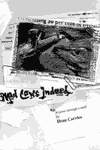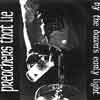Carl Jensen (editor), "Project Censored 1993"
In 1996, the Shell Chemical Company released its No-Pest Strip for sale � soon after serious questions about possible health hazards came up. Shell capitulated in 1971 and issued warning labels that the No-Pest Strip should not be used in rooms occupied by babies, the elderly or the infirm. The warning went further and advised it not to be used in kitchens, hospitals, nurseries or restaurants. By 1987, the EPA officially labeled the strip an extremely high cancer risk. Sales plummeted, and it almost completely disappeared from shelves in the United States.
So you would think Shell would wash their hands of the product and move onto other ventures, right? You would? How fucking naive are you? Sales were still high in foreign markets with more lenient health regulations. In Mexico, for example, the suggested placement for the strips includes �hanging them in kitchens, bedrooms, and above baby cribs.�
And you want to know the really scary part? This story was listed as 24th out of 25 top censored, repressed or under-reported stories of 1992. Just imagine what the other 23 stories are about.
On my journalism resume under �long-term goals� I�ve written, �I want to expose nefarious activities of a corporation and/or government, and then get assassinated by same said entity.� This is the kind of story I�m talking about when I say that. Reading this, however, can be more than a little disheartening; I would rather work for a large metropolitan newspaper, and most the stories featured come form small magazines I have never heard of.
Bigger entities just aren�t interested, mostly out of pressure from advertisers. But it�s also out of laziness. Sleazy sex scandals permeate the �news� of today, often coming off as little better than gossipy tabloids. One chapter of this book compares the top ten censored stories of importance to the top reported stories of that year. Think about this: the top censored story for 1992 was about media outlets selling out in record numbers to corporations. Top reported story: Dan Quayle misspells �potato.�
Yikes! And unfortunately, not much has changed. I turned on the TV this afternoon because I thought it was time for �The Simpsons.� As it turned out, it was the evening news. So I watched. Top story: Cops are still hunting for man who killed his family. Second story: Fire hits posh home in Palo Alto area. Third place: Serial rapist on the loose in the Bay Area.
This is news? These are the things that affect our daily lives? I�m already very alarmed at the drop-off of coverage in Afghanistan. Why the focus on two crimes as the top stories, when violent crime itself has been continually dropping for the past five years? Because it�s easy to report. You don�t need to explain the past history of fire in order to show a house burning. Many of the stories presented in "Project Censored" are on the level of case studies, and have to explain things like foreign policy and economics. How can you do that in a fifteen-second spot on the evening news?
But the worst thing, I think, is that even though "Project Censored" attempts to bring these important issues to light, in all likelihood, the only people reading them are journalists, anarchistic punks (who probably aren�t really reading them), and people who work in used bookstores.
These are always worth buying new, but since they come out yearly, they are hard to find. My bookstore has several copies from a variety of years, all of them fascinating. Come on down and bring the kids, we got lots of snakes and lizards for them to play with. (The link below's to a different "Project Censored" book, by the way. Couldn't find 1993 at Amazon.com.)
I now have 200 books to finish. I�m going to the bar.

